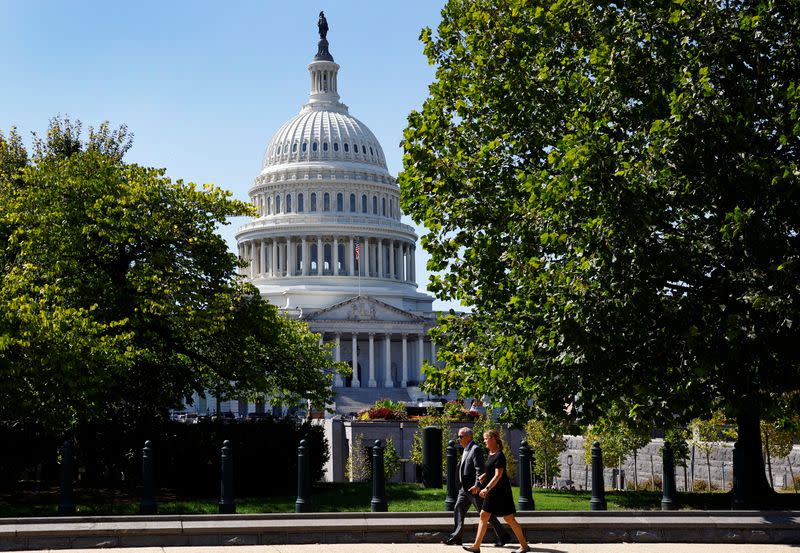Legislation to curb US investment in China is top priority, lawmaker says

By Alexandra Alper
WASHINGTON (Reuters) - The Republican chair of the House of Representatives' select committee on China said on Wednesday that the panel's top priority is legislation restricting U.S. investment in China to stop investors from "funding our own demise."
"We have to have an outbound investment regime that basically says 'No investment in these businesses that are on some kind of a list,' that says 'We shouldn't be helping the Chinese military, we shouldn't be supporting genocide,'" Representative John Moolenaar said, speaking on a panel at the American Enterprise Institute.
"That's probably our number one priority right now," he added. "We are actually funding our demise."
A committee spokesperson confirmed that "genocide" referred to China's alleged treatment of its Uyghur minority in Xinjiang.
The Chinese Embassy in Washington said Beijing firmly opposes "the U.S. overstretching the concept of national security and abusing state power to go after Chinese products and companies." It added that China would "continue to firmly protect the legitimate and lawful rights and interests of Chinese companies."
Moolenaar's remarks signal Congress could revive long-sought restrictions on U.S. investment in China, which have faced a rocky path in Washington.
A measure restricting outbound investment was stripped out of the Chips Act before it was signed into law in 2022. In August 2023, Democratic President Joe Biden issued an executive order giving the Treasury Department the authority to bar or restrict U.S. investments in Chinese entities in three sectors: semiconductors and microelectronics, quantum information technologies and certain artificial intelligence systems.
But rules implementing that order, proposed in July, have yet to be finalized. The Treasury did not respond to a request for comment on the status of the proposed rules.
Moolenaar said House Speaker Mike Johnson "would like to have something before the end of the year." Johnson's office did not respond to a request for comment.
The United States and other Western countries have imposed sanctions on Chinese officials for human rights abuses in Xinjiang, which the United States has said have amounted to genocide.
China rejects allegations of abuses, including use of forced labor in Xinjiang, and describes the camps it has set up there as vocational training centers for Uyghur Muslims that help combat religious extremism.
Moolenaar also flagged specific Chinese companies that he said pose national security threats including Chinese crane maker Shanghai Zhenhua Heavy Industry Co (ZPMC), which was featured in a recent committee report.
U.S.-bound cranes made by ZPMC, which accounts for 80 percent of ship-to-shore cranes in operation at U.S. ports, contain unauthorized cellular modems, creating a "significant backdoor security vulnerability," he said.
"ZPMC could disrupt U.S. maritime equipment and technology at the request of the Chinese government, including during a conflict over Taiwan," he said, referring to the democratically governed island that China claims. The company, he said, is a "loaded gun".
Neither ZPMC nor the Chinese embassy in Washington immediately responded to requests for comment on that issue, but ZPMC has in the past said it does not pose a cyber security threat.
(This story has been refiled to correct the spelling of Uyghur to conform to Reuters style in paragraphs 4 and 11)
(Reporting by Alexandra Alper; Editing by Mark Heinrich, Kevin Liffey, Jonathan Oatis and Kim Coghill)

 Yahoo Finance
Yahoo Finance 